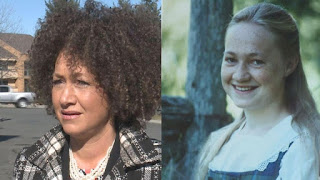As August wound down, I had big plans to write up a Summer Reading List report. That was my September goal, because summertime is reading season, and I read a lot of good books. I surrender to my summer reality: that any creative impulse that dares to surface between June 15 and September 7 is summarily overwhelmed by the needs and wants of my children. Life generates a lot of good material, but the time to jot it down eludes me. So instead of struggling to get a few good words onto the page, I settle for the next best thing: other people's writing.
Now, October's end is here.The school year is in full swing; Halloween costumes have been successfully planned, pinned, and sewn; the last garden veggies have been harvested; the first frosty blades of grass have been spotted. I realize it's late to be offering up a Summer Reading List report. The longer I wait, the less excited I am to tackle the beast. I am daunted by the mighty stack of titles on my desk. So I begin with my two favorite books of the summer - no, the YEAR. They are absolutely amazing fabulous brilliant books, and they happen to share the general themes of my writing and my life:
#1. Loving Day, by Mat Johnson (2015)
and
#2. Oreo, by Fran Ross (1974, reprinted 2015)
Both are novels, each depicting the strained parent/child relations of a mixed race protagonist seeking familial acceptance and clarity of self. Johnson's story is very twenty-first century, set in urban Philadelphia. Oreo also begins in Philadelphia, but is rich with details of the New York City of my childhood. Both stories are based in familiar realities that stretch into startling weirdness, with crazy characterizations of racial and societal stereotypes, comprising bold, intellectual satire.
I love a book that keeps me engaged and smiling, while reminding me, "this writer is really, really smart". I'm grateful that these two applied their talents to the under-represented genre I call:
cross-cultural autobiographical fiction.
Ms. Ross writes like the black godmother of Jeannette Winterson - A scary genius, she disguises the ancient myth of Theseus (which I never would have caught, if not for the great afterward by Harryette Mullen) into futuristic American folklore, featuring a brown teen-aged heroine who travails untoward horrors with superhuman cunning and wit. There are so many surprise turns in the plot, I had to backtrack a few times to catch my breath. That a young, afro-ed, woman writer committed the work of Oreo to the page and succeeded in finding a publisher, in 1974, is a miraculous gift. Thanks and praises to New Directions for bringing it back into the light.
Loving Day is about a father seeking his estranged daughter's trust and acceptance, while trying to reconcile his own father's legacy. Their journey includes a utopian multiracial commune that is hilarious, hopeful, and tragically unsustainable. Loyalty and love are tested, deformed, and mercifully survive. The writing is so good, you hate for it to end. The good news is, Mat Johnson has other books out there, which I'm about to read..
Oreo was way ahead of it's time, and as a recent re-print, has yet to catch on. Perhaps this has something to do with its fearless feminist message!? But I recently read that Loving Day has been optioned for television. So I'm spreading the good word about these two great reads, as I remain convinced of our stories' relevance and worth.
I'll eventually get to the rest of the stack, I promise.








